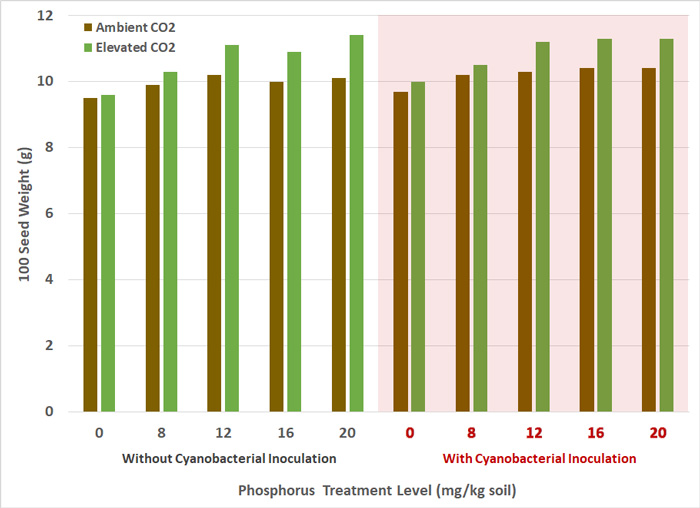| Follow @co2science |
Paper Reviewed
Dey, S.K., Chakrabarti, B., Prasanna, R., Pratap, D., Singh, S.D., Purakayastha, T.J. and Pathak, H. 2017. Elevated carbon dioxide level along with phosphorus application and cyanobacterial inoculation enhances nitrogen fixation and uptake in cowpea crop. Archives of Agronomy and Soil Science 63: 1927-1937.
Cowpea (Vigna unguiculata) is an important drought-tolerant legume crop cultivated primarily in Asia, Africa and Latin America, where its production has been particularly helpful in maintaining food security. In an attempt to determine how this crop will react to future changes in atmospheric CO2 concentrations, Dey et al. (2017) recently conducted a Free-Air Carbon Dioxide Enrichment (FACE) experiment to observe cowpea response to elevated CO2 at different levels of soil phosphorus, both with and without seed inoculation with cyanobacteria.
The experiment was conducted at a FACE facility maintained by the Center for Environment Science and Climate Resilient Agriculture in New Delhi, India. There, cowpea crops (cv. Pusa Sukomal) were grown in pots under two CO2 concentrations (400 or 550 ppm, for ambient and elevated CO2, respectively) and five phosphorus (P) treatment applications (0, 8, 12, 16 or 20 mg P per kg of soil added, corresponding to control, 75%, 100%, 125% and 150% of the recommended dose). Additionally, approximately half of the plants in each of the treatment conditions were inoculated with cyanobacteria, which allowed the researchers to study their influence on cowpea crop growth as well.
In discussing their findings, Dey et al. report that elevated CO2 increased leaf chlorophyll content and "improved nodulation and nitrogen fixation." As a result, crop growth, biomass and seed yield were all enhanced (see figure below for an illustration of seed yield). Cyanobacterial inoculation and the addition of phosphorus led to further improvements in root growth, N2 fixation and availability of soil nitrogen, which also benefited yields. Consequently, the authors conclude that "under increased CO2 concentration, growth and N2 fixation increase in cowpea, and supply of P in adequate amount along with cyanobacterial inoculation can help in the overall improvement of plant and soil N status." Such yield increases due to atmospheric CO2 enrichment, cyanobacteria seed inoculation and P addition to the soil should prove a great blessing in helping the many developing countries that cultivate this crop to maintain the food security of their citizens. And that is truly great news worth reporting and sharing!

Figure 1. 100 seed yield weight (g) of cowpea plants growing under ambient or elevated CO2 conditions at five different soil phosphorus treatment levels, both with and without cyanobacterial inoculation. Source: Dey et al. (2017).




